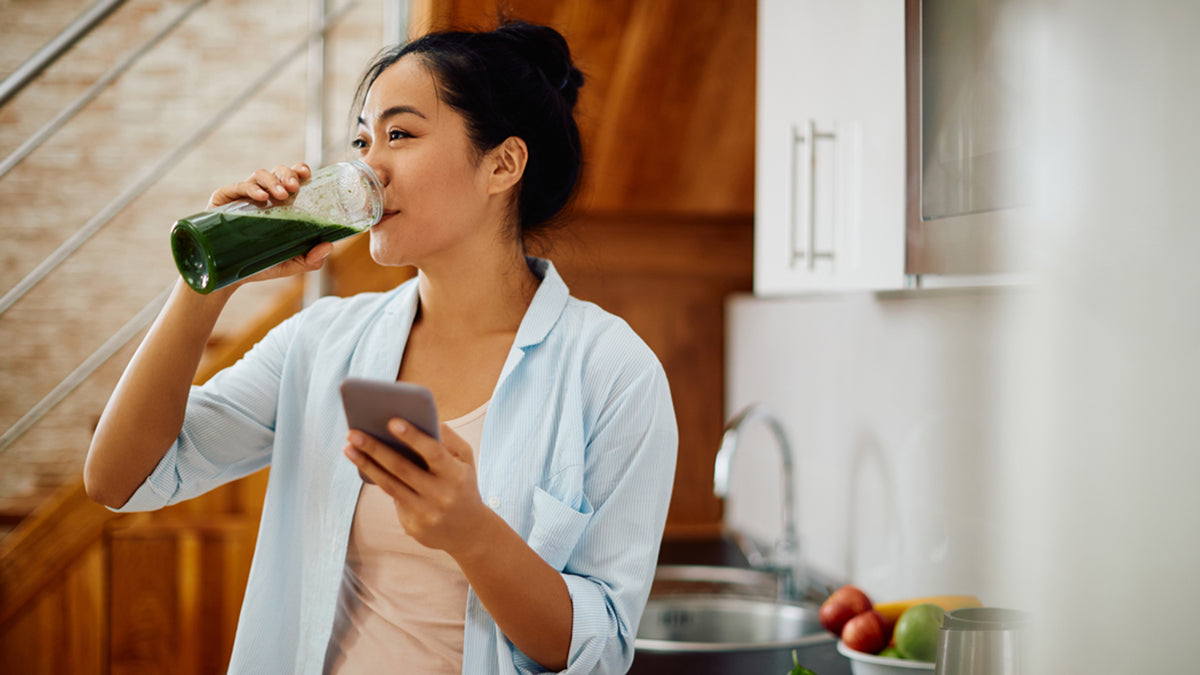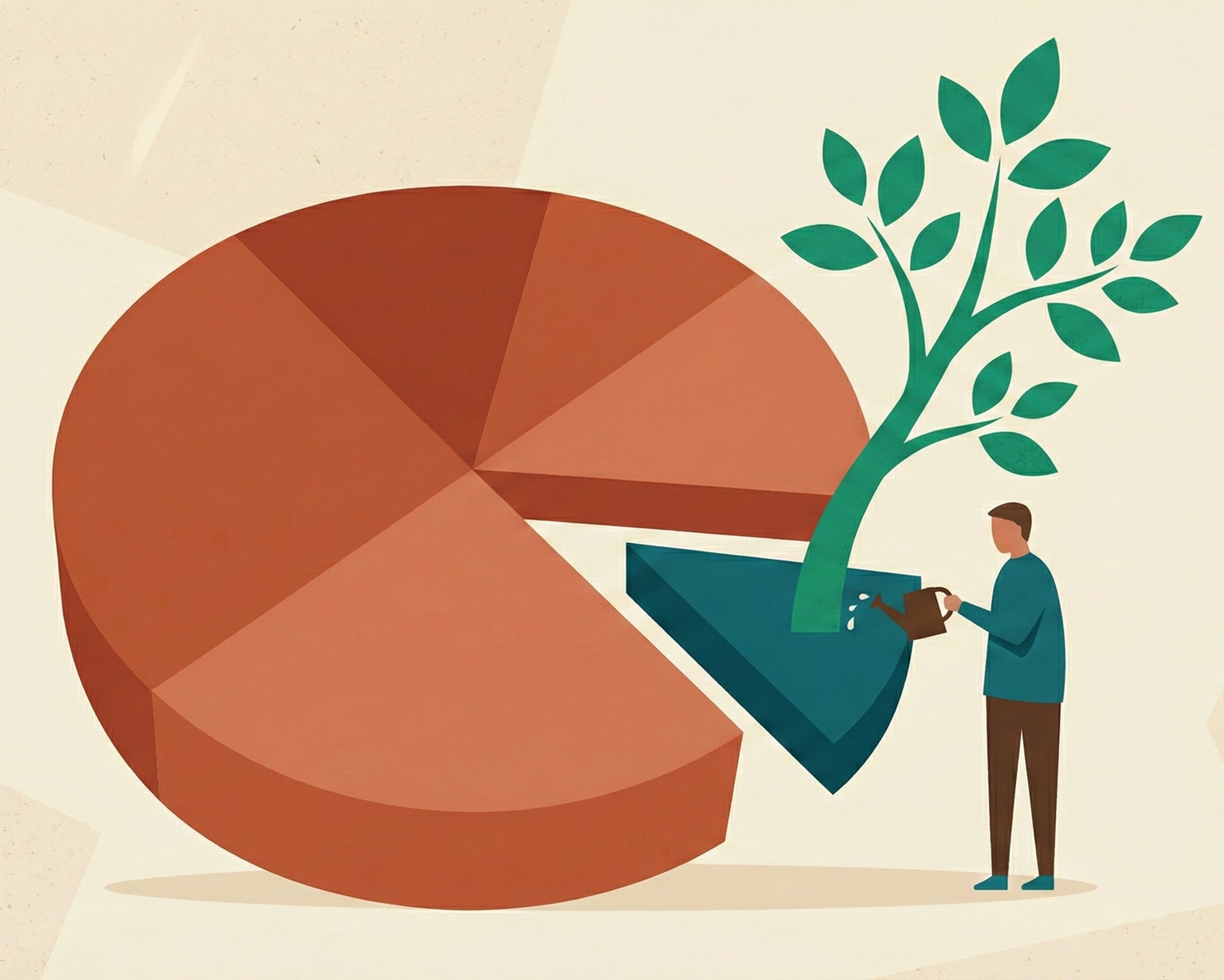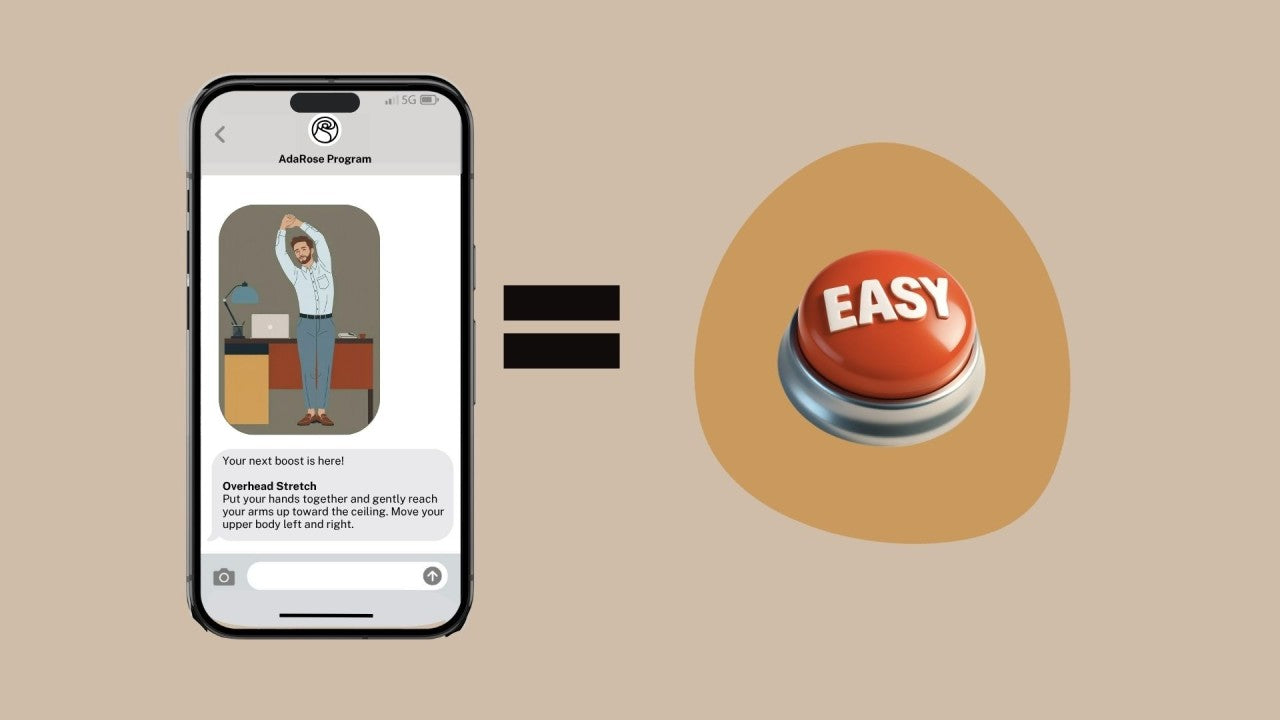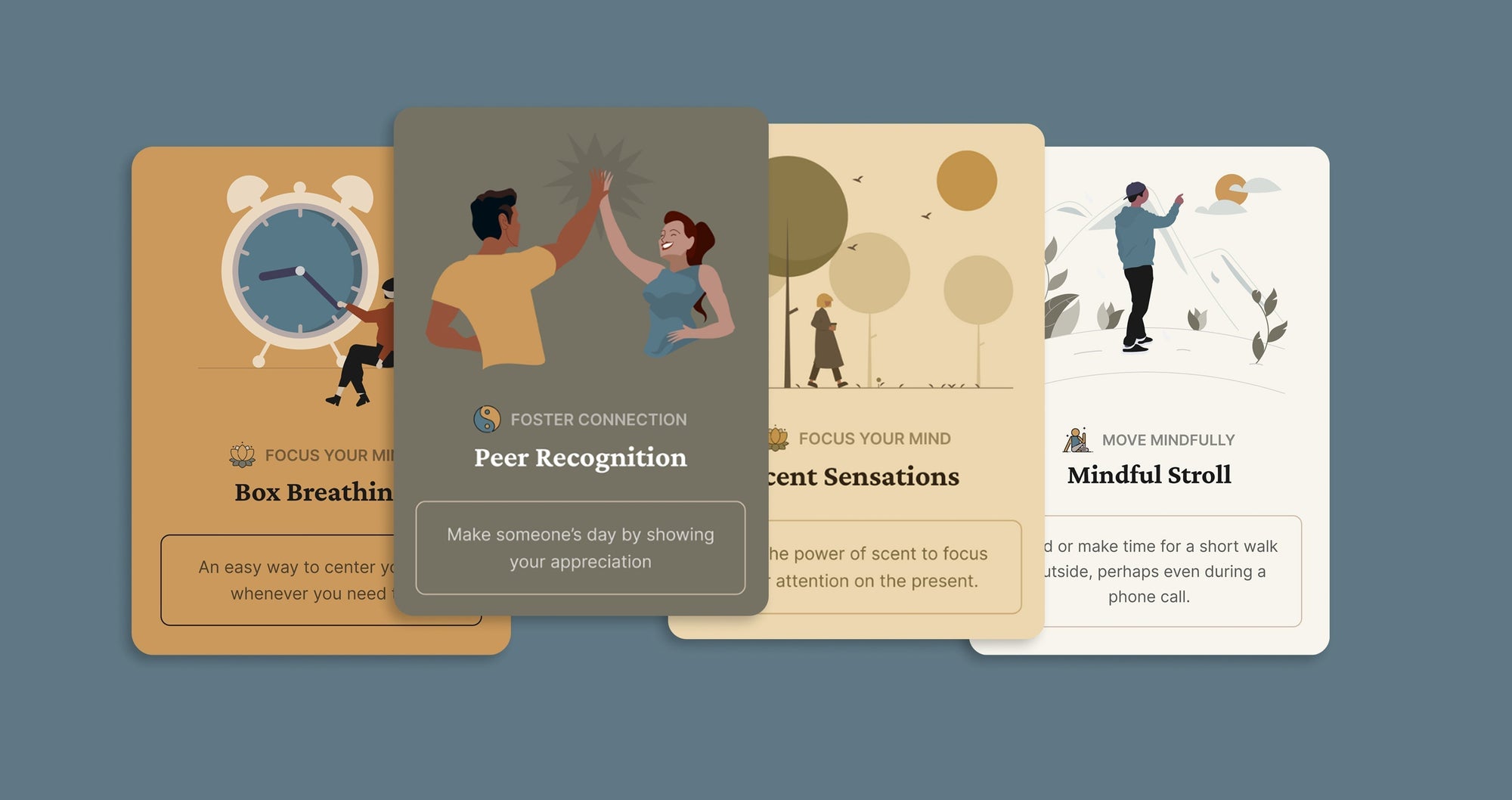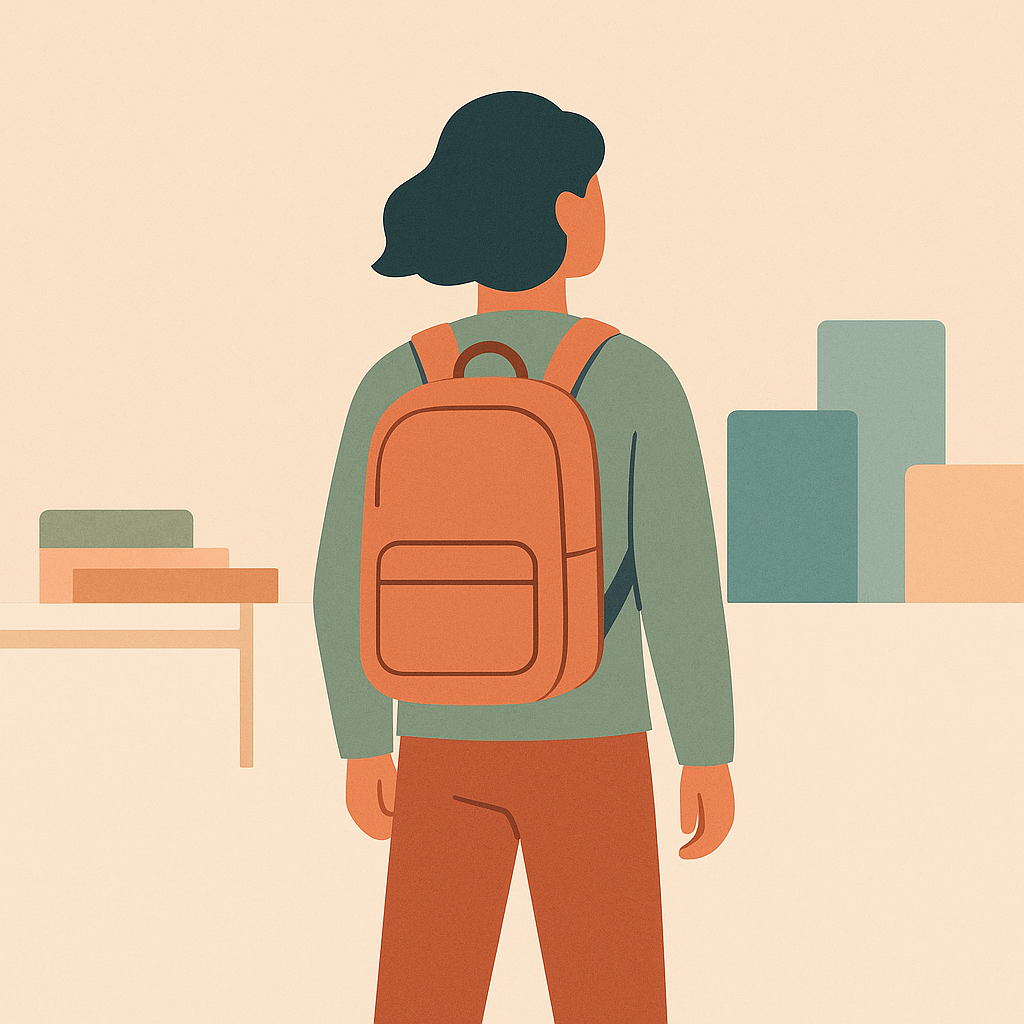Lygeia Ricciardi of AdaRose interviews national healthcare expert Dr. Geeta Nayyar on how to leverage digital technology to take control of your health in 2021. Their conversation covers how the pandemic catalyzed changes in virtual healthcare including telehealth, telemedicine, use of wearable devices, remote patient monitoring, patient care coordination, and general healthcare technology trends. Dr. Nayyar also gives her guidance to help families navigate the next stretch of returning to normal, including a discussion of mental health and technology. She shares tips, suggestions, and sound advice for staying safe and healthy with minimal hassle in the months and years ahead.
Please note: this interview was conducted prior to the recent outbreak of cases of the Delta variant of the COVID virus. For in-depth information about the Delta variant from Dr. Nayyar and Dr. Anthony Fauci, check out the PBS Health Channel "Town Hall" on COVID vaccines broadcast on August 18, 2021, or check the Center for Disease Control (CDC) website.
You can watch the video interview here, or read the transcript below.
Interview Transcript
Lygeia:
Welcome to The Digital Health and Wellness podcast, brought to you by AdaRose. Our guest today is Dr. Geeta Nayyar, who is a nationally known health information technology thought leader and expert.
She's also a practicing physician. She often appears on CNN and other nationwide networks like ABC. Recently, she was featured with Dr. Fauci, talking about COVID. She knows her stuff. And today we are talking about healthcare that fits your life.
Geeta, so awesome to have you! Thank you for joining me.
Geeta:
Thank you for having me, Lygeia. Your living room, your Oprah situation behind you, looks so inviting, I can't wait to actually sit on it one day, but thank you for this!
What is the current status of the Covid-19 pandemic from your perspective? (0:56)
Lygeia:
One day you absolutely will, that would be awesome!
So, I want to ask you some questions and get to some really practical advice for people who are tuning into this video podcast. I want to start off with COVID, which has obviously been the central issue in healthcare for the last year. Obviously, we've got several vaccines in play. What do you think, sitting where you do, do you see the end in sight? Are you feeling optimistic? What do you think is sort of the end of the tunnel to relative normalcy?
Dr. Geeta Nayyar:
Sure, so, again this is a global pandemic, this is very much happening around the world, I think it's important to remember that. The only way for us to get out of this is as a global community, which means that everyone has to wear a mask and everyone has to get vaccinated.
I think that we are all looking for that saving action or that saving moment, and there's a lot of debate on the different vaccines. The bottom line is we can end this today if everyone literally wore a mask today.
So I say that very humbly, that there are many solutions right in front of us, and unfortunately, at least culturally here in the Western world, we want that medication, we want that vaccine, which is terrific. Everyone needs to get the vaccine, unfortunately, everyone doesn't have access right now. But they do have access to a mask. So I would number one say we wear the mask, that remains the way to get out of this, washing your hands, and socially distancing.
That has not changed as much as we continue to use that as our mantra. There's a reason why we do. But please, if you have access to a vaccine, any vaccine, it does not matter which one at this moment, please get vaccinated!
Those are the ways out. And yes, I do feel hopeful. We, you know, this has been a long year. It's been a rough year. It feels like a year that's been in many ways in slow motion. And then for those of us in healthcare it's been exhausting because there's been so much to do. But really the trick is doing all the same things we've been talking about from the beginning. And if you do have access to a vaccine, please, please do get it.
What are some things to keep in mind this coming Fall for children going back to school? (2:40)
Lygeia:
That is awesome advice. I want to ask specifically though for those of us with kids, I know you have a kid. I have two, what's the latest with kids and school, and should you be sending your kid to a summer camp? What do you need to know if you're considering it? Do you think that kids are going to be vaccinated before, say next fall? Any thoughts from your perspective, again, professionally and as a mother?
[Again please note: this interview was conducted prior to the recent outbreak of cases of the Delta variant of the COVID virus. For in-depth information about the Delta variant from Dr. Nayyar and Dr. Anthony Fauci, check out the PBS Health Channel "Town Hall" on COVID vaccines broadcast on August 18, 2021, or check the Center for Disease Control (CDC) website. ]
Geeta:
Right. You know, again, it really relates back to the last question, which is how well in your region are those things happening, right? So how well in your region are people socially distancing? How well is your school or your school system dealing with the COVID situation?
Here in Florida we've been open for quite some time. We've been on some really good regimens, at least at our school locally. I do have a nine year old as well, but it's really turning out to be very regionally focused. So I think you'd better be on top of your specific school system. You need to do everything you can as a family to follow the guidelines, which again remain socially distancing, wearing a mask, washing your hands.
And as far as the vaccine for kids, it's too early, it's too early to tell, right? We're going to get this information in the testing. And the research is all going to happen this year can never be fast enough as we are all losing our patience with this, with this virus. But the truth is, we've, we've just got to start with doing our part. And that is what gets our kids back to school and the community back to being open.
Is virtual healthcare here to stay? (4:09)
Lygeia:
A hundred percent I agree with that, and, not to diminish in any way the importance of it, but I'd love to think with you for a moment about what happens assuming we get this all under control.
One of the things we saw during the last year, as you know, is a big switch to a lot of virtual healthcare. So how much do you think that's going to stick around once we're sort of through the pandemic, do you think the way we do healthcare is going to be substantially different, or do you think it's going to stay–kind of go back to as it was?
Geeta:
So, you know, I think virtual is here to stay, right? I think the fact that we're doing this interview the way we are, and I've done so many now, I think we've discovered a power, right? We discovered a power in technology. We've discovered a power in connection and we've discovered that the problem is access.
So however we can get access, whether that's a brick and mortar system, whether that's a virtual video call, or whether that's a phone call, right? Or an email or a text at this point, it's about access. It's about solving problems and really, the medium in which we do isn't as relevant unless there is a limitation, right? Babies still have to be born, and surgery still has to be done. That cannot be done on Zoom. So, you know, but the next best, right?
And at this point we're starting to realize that we've got to start meeting patients where they're at, and everyone is at home right now. And perhaps what we're also finding is the convenience of that. And when we do that, we're able to eliminate the things that before were impediments: transportation, time, right? I'll tell you here in South Florida, right, the amount of time in traffic to get to the pediatrician and back, and the time to take off work!
Lygeia:
Yes. Take off work, off school, possibly spreading some infectious something even outside of a pandemic situation. I'm very familiar with that pain.
Geeta:
Right. I think all of us "Dr. Moms" at home are. And so convenience matters. Convenience matters because more likely you're also gonna have a compliant patient.
Lygeia:
Yes.
Geeta:
You're going to have someone that's like, I'm not going to put up with that. 'Cause now I don't take a half day off work or half a day to get there or, or whatever the issue might be. But I think we're definitely discovering that there's a lot of power in the technologies that are out there, but the most important problem that technology is solving is that access issue. It's still the number one issue patients have. "Doc, I just want to talk to you, I want to see you, I want your advice, I’m curious."
Digital health trends and wearable technology for patients in the healthcare setting (6:18)
Lygeia:
So folks who participate in the AdaRose community tend to be technology-relatively comfortable, or at least curious. And a lot of us wear wearables and track different parts of our life, whether it's through smart home devices or things that are on our body. Do you have any thoughts about sort of integrating those into healthcare going forward?
Do you have any patients who show up and say like, "Hey, look at this graph" or are you starting to talk to colleagues who are seeing more of that? Do you think that's going to happen increasingly in the future?
Geeta:
Sure. So, you know I definitely think we have a consumer who's much more tuned into their health, right, before it was sort of taking your health for granted, or just wasn't a top priority, or any variety of excuses that we all have. Right.
So I think we definitely have a consumer now that's asking themselves, gosh, how do I stay healthy? How do I certainly avoid this virus? How does my family avoid it but then how do I actually stay healthy and my best. Right. And that's where I think a lot of the wearables come in, and a lot of different technologies and just resources, right?
You have a lot of people reading more, for good or bad, and looking for information online. So I think that leaning into healthcare is really important. As far as the different technologies, you know, again, I think we still have a long way to go, but the point is that there are many modalities that patients can use to track a number of things.
Whether they come in with their graph or not isn't really the issue, but it's more patients will say, "WelI, you know, I try to do 10,000 steps a day, doc." Right. And how do I know that they're doing it well? Because they have a phone, they have a watch, they have some way in which they're tracking that. Does that necessarily need to be shared with me? You know, not so much, but it does help. Certainly with goal setting.
You know in the cardiology space, heart rate can be really valuable, heart rate monitors and rhythms. But I do think that we're still quite a far, quite far away from that. But I think from a lifestyle standpoint, we see a lot of different technologies around diet, exercise, running, swimming, you know, they seem to be more of a lifestyle lifestyle kind of technologies, which I fully endorse. Again, whatever works!
And you know, at the end of the day, it's also kind of just check your pulse on that and then go for a run. So for me, it's never about the technology though, it's about the outcome. But I definitely think it helps when you can count, because it gives people a goal.
Lygeia:
I think it also helps us, and I've had some experience with this, understanding maybe not just what's normal according to the charts, but what's your normal. You know, like if this is unusual for you maybe it's an issue, but if it's not, you know, you're unlike anybody else. Also, you know, your habits and so on, so I think it's important in that way.
What does care coordination look like as the “doctor-mom” role within our families? (8:57)
Lygeia:
So another aspect of information technology that impacts consumers is this idea of care coordination. And I know for myself anyway, particularly when I look at my whole family, we see a whole lot of different providers.
We will go in and get a flu shot at the Minute Clinic down the street. We will go to a pediatrician if it's something that we're planning, but then if something comes up, we're going to urgent care. We've got dentists, we've got, you know, like lots of different things going on. Specialists.
How much nowadays, in your estimation, do you think that's getting kind of coordinated? And to what extent is it our responsibility as patients, often in that doctor-Mom role, to be like pulling it all together in some way and sharing. What do we need to share? Like what does that job look like? Is it a job?
Geeta:
Sure. No, I think that's a great question. And first of all, you know, welcome to the AdaRose community, right? Which I consider myself a part of! This is, what you've described, is the average American household, right? And particularly, you know, Mom, again is in the driver's seat, whether you're shuttling to the Minute Clinic or the pediatrician and etcetera. So totally relate to that both as a doc and as a Mom.
Listen, I think that ultimately our system is clearly fractured in many places, and unfortunately the coordination of care is not happening from the system. So that does leave it to us. Right. That does leave it to us as the consumer, as a patient.
And I always end up finding myself making food analogies or mechanical analogies. Right. My car, I don't know exactly what happens to my car, but when something is wrong, I take it to the mechanic. Right. And I keep all kinds of paperwork as to what they did last time. Or, you know, cause if I relied on their computer system, chances are, they don't have half of it. Sounds familiar, right
Same thing when you go to the doctor and we all think, "oh, it's in the computer" but it's a different computer. It's not the one that the hospital uses, the dentist uses, the Minute Clinic uses. So I do, I think at the end of the day this is up to the consumer, keeping your information, tracking it, getting copies.
Digital makes it easier. Does it have to be, you know, digital? Of course not, but it certainly makes it easier. It also makes it easier to pass and share along with family members. So hopefully we are seeing more of that, but at the end of the day, it really is on us, like everything else, just to protect ourselves and our families. So I think it's always best to assume that responsibility and then find the tools to help you do exactly what you said.
The impacts of technology on mental health (11:18)
Lygeia:
Yeah. Agree with that. I want to flip over to another topic at the intersection of health and technology, which is mental health. And I know that statistically many Americans and I'm sure worldwide, have been experiencing, and particularly younger people, but I think it's across the board demographically, a lot of stress and anxiety during COVID, in particular for and I would say during, the last year we've had so many different stresses to contend with.
And I wanted to talk about technology both as a potential source of alleviating some of that challenge and stress, but then also, potentially as a risk that might be a catalyst for making it worse. I wanted to get your thoughts on whether this is something, again, I don't know if this is something you've seen at all with patients that you're working with, but yeah. I mean, how are people using technology differently? And would you say on balance, it's helping or hurting our health?
Geeta:
So, you know, I think that's a great question. Number one, mental health was always important, right? I think what's humbling everyone now is we're kind of going through things together. I think we were also appreciating that probably many of us were having issues long before the pandemic that have either been exacerbated or just all happening at the same time. So there's this tremendous kind of outpouring of support and just folks being a lot more receptive to one another.
Technology has been great in the mental health space, right? You've seen a lot of psychiatrists, psychologists, be able to really scale, continue to see patients because you're really having to eliminate that physical exam which is so often needed in primary care and just kind of everyday medical practice.
So, you know, I, again I think the genie's out of the bottle, it's not going back. I think it's been terrific that people are able to access more medical services than ever. But you know, ultimately it's about the root of, you know, mental health issues, and what are we going to do about that?
And certainly technology has helped us all stay connected, but it's also keeping us apart in many ways. Right. And having to take that iPad out of my child's hands or the phone out of the family's hands and say, "let's go for a walk, let's go to the park."
So those issues are perhaps being doubled down on a little more in this pandemic. But I think the key is being gentle with ourselves, gentle with the folks around us. And we're all entitled to a bad day, probably a lot more in a week than before the pandemic.
Lygeia:
And I will say, a movie or a show or quite honestly something about, like, happy, cute animals can come in just at the right time and pull, not just myself, but our family into kind of like a better frame of mind. So a little bit of sort of self forgiveness I suppose it sounds like you're talking about. And I, again I know that you manage this as a parent, and it's not always perfect finding the right balance.
Geeta:
It is impossible. It is impossible. We never rest!
Lygeia:
So pretty much I guess, accept that fact. And then I might add for those of us who are kind of experiencing some of the same stresses, sometimes it can be helpful just to use technology to reach out to one another and share our stresses and support one another, right? Like that well-timed, you know, positive thought or emoji, or whatever it is.
Geeta:
Lygeia, if you live closer, right. I'd be like, "let's go, let's go on a spa day!" But sometimes it's just that text, right? It's just that text. If I'm having a bad day or this happened, what would you do? You know, Lygeia, our ladies, you know we all have our kind of support systems. You're certainly part of mine!
And I think that that hasn't changed. We've just, like you said, we've just found different groups. We've found different WhatsApp groups, different Facebook groups, but the point is we’re all longing for belonging, right? We're longing for belonging and whatever that looks like to all of us, and technology is helping us. But I think we do have to keep that balance of also getting out there physically as much as we can, safely.
Making the most of your health and healthcare in these coming months (15:08)
Lygeia:
Awesome. So this is a lot of good advice, and a lot of good thoughts. Anything else you want to add for a listener to this video podcast who might be thinking, okay, how do I get ready to sort of make the most of my health in the coming months as we emerge from COVID, maybe move into some new paradigms?
Geeta:
So, you know, I think the one thing to remember is this is a marathon. It's not a sprint, right? This is not going away, unfortunately, anytime soon. So I know many folks that stay away from the doctor, stayed away from the dentist, stayed away from some of the things they routinely would do, you know at the beginning of the year or beginning of a birthday, you know, I often tell patients to remember that, you know, to get a mammogram around their birthday and you know, just those reminders. So a lot of people put off care.
I think it's safe to say you've got to make a plan as a family, right? Because this is going to continue, certainly throughout this year, for sure. So, you know, avoiding the doc, missing that mammogram, that colonoscopy, can really be detrimental to your family's health. And I don't know that much is going to change anytime soon.
So really making that plan, making sure you do have a doctor if you don't already and knowing what you know, what it is if you're going to make the appointment what are the protocols for COVID? Because I think if you're being safe you're still able to do the things you need to do for healthcare, and the safer and healthier you are it really is going to help you battle COVID and just just be healthy to battle anything out there in the universe, which is what we talk about everyday as docs.
So I would say it's time to start leaning back into routines and health maintenance, and just making sure you're doing it safely!
And if you do not have a doctor, please get one. I think this pandemic has reminded us that we all need that personalized conversation with our doc for times like these, when we just don't know what to do. And there's no one better to turn to than your physician. Be very wary of “doctor Google,” “doctor social media”, neighbor, blog, nurse. There's a lot of bad information out there. Make sure you know where you're getting your information, you're checking the source.
And ultimately the only person that knows about you and your health and what's right for you, not your neighbors, but for you, is going to be that doc that knows you best. So just making sure that message isn't lost. It's going to be really critical to getting us out of this pandemic.
Lygeia:
Well, I wish we all could have doctors a little bit more like you, Dr. Geeta. Thank you so much for the advice here. And I think the, you know, wise words as well as I think there, I mean, there is a ray of hope. Thank goodness we're moving forward. I think getting the pandemic under control, fingers crossed, and hopefully the next months will look easier, particularly as we move into warmer weather. I want to thank you so much Geeta for your time and your wisdom!
And thanks also to those of you who tuned in to listen to us. I would love to hear from you. How do you think healthcare has changed for you over the last year? And what are your primary concerns and interests? What do you hope stays the same or maybe is different going forward?
To hear more episodes of the digital health and wellness podcast brought to you by AdaRose, please subscribe to our YouTube channel, follow us on Instagram, and thank you so much. Take care!

